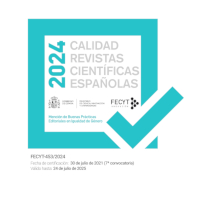The politics of discourse in Thomas More's "Utopia"
DOI :
https://doi.org/10.18172/cif.2220Résumé
Besides being the cornerstone of modern utopian fiction, Thomas More’s Utopia provides a paradigmatic example of a doctrinal text and a serio ludere in which questions related to the use of narrators (e.g., who speaks and for whom; on which diegetic level each speaker exists) are as important as the content of the doctrines being expounded. As happens in other towering works of the Renaissance (such as Miguel de Cervantes’s Don Quixote or Anne Bradstreet’s The Tenth Muse), the main text appears buried underneath a thick layer of epistles, poems, dedications, and recantations. The principal function of these paratexts is to give a satirical dimension to the description of the kingdom of Utopia. Just as important, the silencing of Utopia’s history reinforces the hypothesis that in More’s fiction, Raphael Hythlodaeus’s narrative works toward legitimating the fragile Tudor regime, with which it is ironically contrasted.Téléchargements
Téléchargements
Publié-e
Comment citer
Numéro
Rubrique
Licence
Les articles appartiennent à leurs auteurs respectifs qui accordent à la revue le droit de première publication, l’autorisation de la revue n’étant pas nécessaire pour leur diffusion une fois publiés. Une fois la version de l’éditeur publiée, l’auteur est tenu de s’y référer dans les versions archivées dans les dépôts personnels ou institutionnels.
Il est conseillé aux auteurs/s d’archiver la version de l’éditeur dans des dépôts institutionnels.
La revue permettant à d'autres de réutiliser les ouvrages selon les conditions de la licence CC Attribution 4.0 International (CC BY 4.0)














